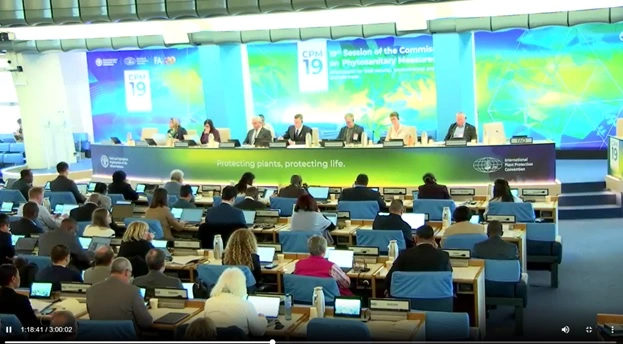
Manila, Philippines| In a significant milestone for the Philippine agricultural sector, the Bureau of Plant Industry (BPI) proudly announces that the Philippines has officially secured market access to Russia for three high-value crops: Hass Avocado, Calamansi, and Okra. This hard-earned milestone follows rigorous negotiations that began in 2017.
The breakthrough comes after several diplomatic efforts led by Department of Agriculture (DA) Secretary Francisco P. Tiu Laurel, Jr. and BPI Director Gerald Glenn F. Panganiban. The Philippines has long sought to expand its agricultural exports to Russia, and this success is expected to strengthen trade relations while creating new opportunities for Filipino farmers and exporters. A pivotal moment occurred on February 10, 2025, when Secretary Tiu Laurel met with Mr. Alexandr Syrtsev, the representative of Russia’s Ministry of Agriculture in the Philippines. This was followed by the Commission on Phytosanitary Measures (CPM) meeting held in Rome from March 17 to 21, 2025, which was attended by DA Assistant Secretary for Policy and Regulations, Atty. Paz J. Benavidez II; Agriculture Attaché and Deputy Permanent Representative to the Rome-based UN Agencies, Dr. Josyline Javelosa; Director Glenn Panganiban; and BPI-PQS Subic Area Manager, Ms. Carmela Barradas.
The meetings with the Russian delegation emphasized shared interests and the critical role of plant health standards in facilitating global market access.
Persistent Diplomacy and Strategic Negotiations
Securing market access for these key commodities has been a long, detailed, and iterative process. Since 2017, the BPI has worked closely with Russia’s Federal Service for Veterinary and Phytosanitary Surveillance to ensure that Philippine products meet Russia’s strict health and safety standards. The BPI has been vital in ensuring compliance with Russia’s phytosanitary requirements, including the submission of pertinent information for pest risk analysis.
During his meeting with Mr. Syrtsev, Sec. Kiko reiterated the Philippines’ commitment to pest management. He emphasized the government’s proactive approach in enforcing stringent border controls and adhering to plant protection measures to safeguard agricultural health and facilitate trade. This was further underscored during the CPM Meeting in Rome, where side meetings with the Russian delegation played a central role in facilitating market access for the specified commodities.
Implications for the Philippine Agricultural Sector
Access to Russia’s market presents a significant economic opportunity for Filipino farmers and exporters. Hass avocados, calamansi, and okra are increasingly in demand worldwide due to their culinary versatility and health benefits. With access to Russia’s vast market, the Philippines is well-positioned to expand its export volumes, potentially generating substantial revenue for the agriculture sector. This also creates employment opportunities in logistics, packaging, and food processing.
In 2024, the Philippines exported 13,224.13 metric tons (MT) of agricultural products to Russia, based on Phytosanitary Certificate issuances. Desiccated coconut was the leading export, accounting for 86% of total agricultural exports to Russia.
Moreover, there remains significant untapped export potential. According to the International Trade Centre (ITC) in 2024, while the Philippines already exports fresh bananas, there is an unrealized export potential worth $47 million. Pineapples also present an opportunity, with a $19 million untapped potential in the Russian market.
Diversification and Future Growth
This development is a key part of the DAs broader strategy to diversify its agricultural export markets. The BPI has actively worked to expand the reach of Filipino products beyond traditional markets in Asia and North America. With Russia emerging as a growing market for tropical and temperate crops, the Philippines stands to benefit from a wider array of export opportunities, helping to secure long-term growth for the agricultural sector.